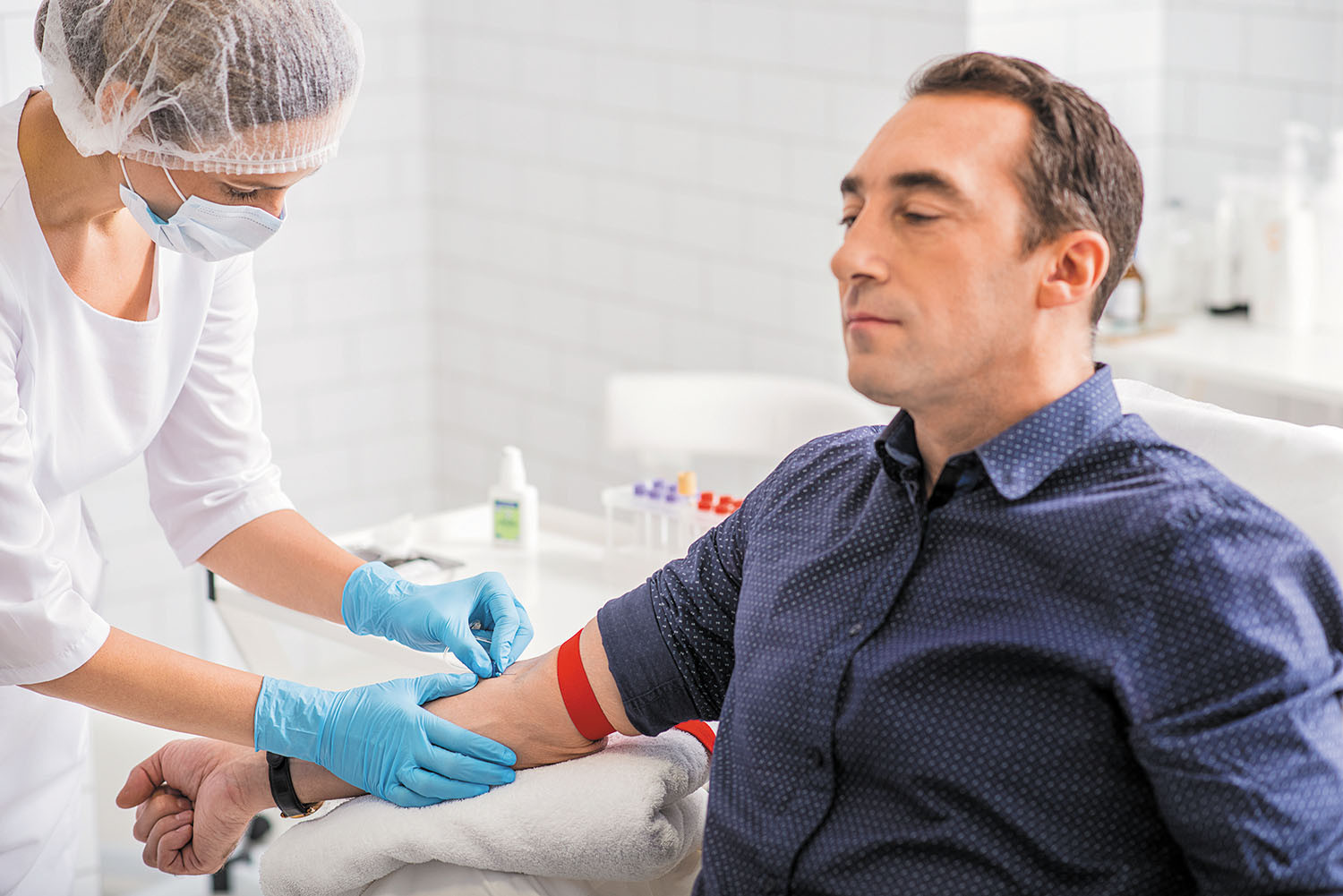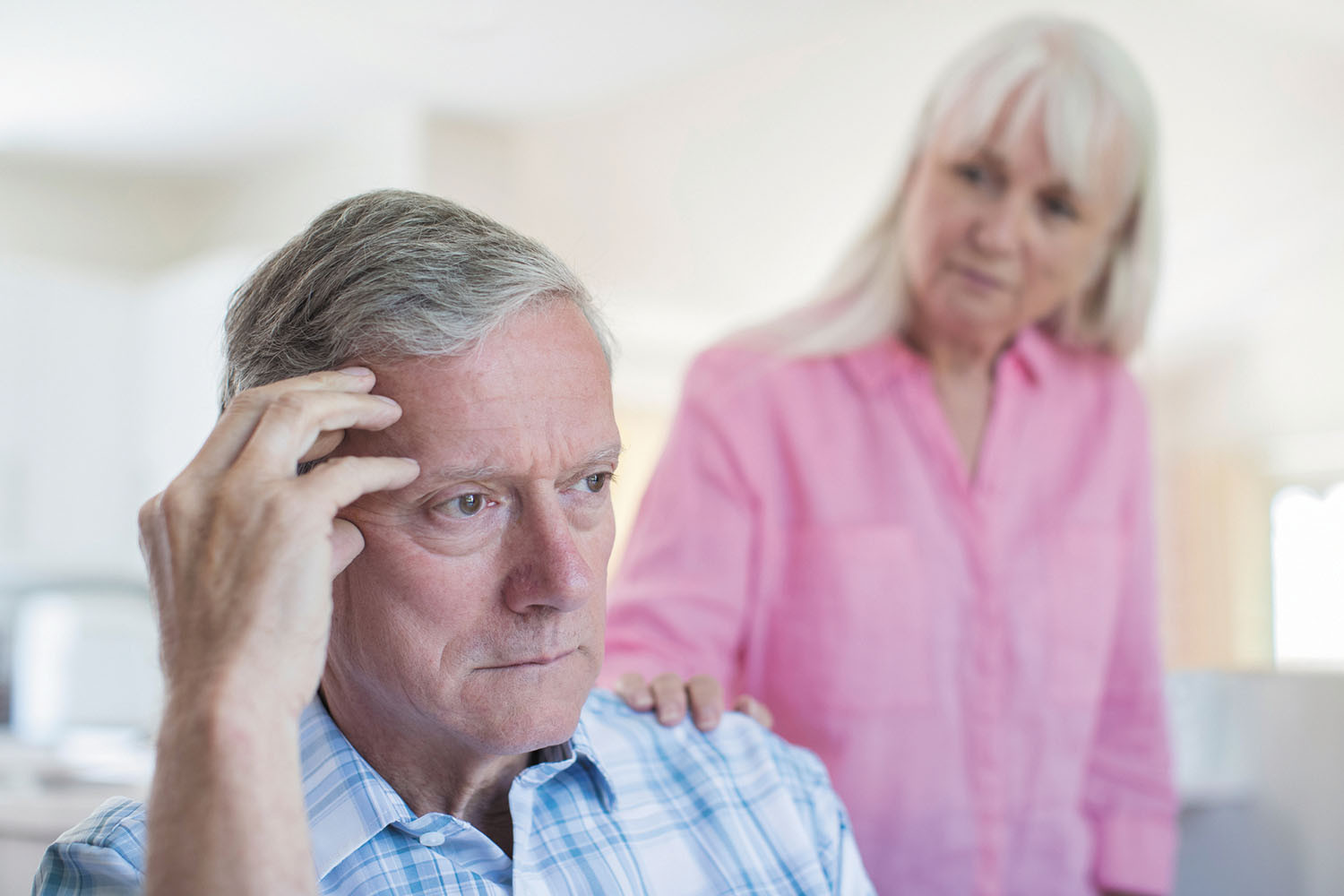
5 timeless habits for better health

What are the symptoms of prostate cancer?

Is your breakfast cereal healthy?

When pain signals an emergency: Symptoms you should never ignore

Does exercise give you energy?

Acupuncture for pain relief: How it works and what to expect

How to avoid jet lag: Tips for staying alert when you travel

Biofeedback therapy: How it works and how it can help relieve pain

Best vitamins and minerals for energy

Should you take probiotics with antibiotics?
Mind & Mood Archive
Articles
Anxiety overload
Anxiety often brings physical sensations ranging from dry mouth, nausea, or sweaty hands to more severe symptoms such as dizziness, shortness of breath, or a racing heart. Extreme symptoms can manifest as anxiety attacks and cause people to avoid everyday activities. Cognitive behavioral therapy (CBT) is considered the gold standard treatment for extreme anxiety. One common form of CBT involves exposing people to stressful situations to learn how to cope.
Try this: Take a seat
Regular meditation can lower blood pressure, reduce stress, and improve concentration. Practicing a simple 10-minute mantra-based meditation and observing mindfulness during everyday moments are ideal ways begin a meditation practice.
Hearing aids: Can they help thinking skills, too?
A 2022 review of dozens of randomized controlled trials and observational studies found that people who used hearing aids or cochlear implants had a 19% lower risk of cognitive decline, compared with people who didn't use the devices.
Tips to cope with medical test anxiety
Some people have anxiety about getting medical tests such as blood work, CT scans, or MRIs. When debating whether to skip a medical test due to fear, a person should get as much information as possible about the test or ask for medication to reduce pain or anxiety associated with the test. During a medical test, it may help to do relaxation exercises or focus on something fun planned for later in the day.
What is frontotemporal dementia?
Frontotemporal dementia (FTD) is a brain disorder caused by damage to nerves in certain parts of the brain. It typically affects people in middle age, and is characterized by marked changes in behavior or problems with language.
Want to reduce your risk of dementia? Get your hearing checked today
Dementia occurs more often among older people with higher levels of hearing loss than among those with normal hearing. A new study found that wearing hearing aids reduced the risk for dementia in people who had significant hearing loss.
Managing the unthinkable
One in 10 Americans ages 65 and older has dementia. The condition is likely to progress slowly, offering couples the opportunity to adopt coping strategies that can smooth their path. Early on, you can consider treatment that may temporarily improve memory and thinking problems. People whose partners have been diagnosed should get informed about dementia, attend doctor's visits, take over certain tasks, keep routines, update legal documents, and join a support group.
It may not be too late to protect against dementia
Older adults can still lower their risk for dementia by taking medication to decrease their high blood pressure, according to a recent study.
You don't say? The smell of love
Pheromones, the "love chemical," are produced by many animals and insects to attract the opposite sex. It's possible that humans also may make and process pheromones through vomeronasal organs in our noses.
How to identify anxiety disorders
Some degree of anxiety is normal, but people who regularly struggle with anxiety may have an anxiety disorder. Symptoms can be linked with life changes, a medical condition, and specific situations, like a fear of heights, crowds, and social situations. Recognizing the symptoms can help people seek medical care to find the source of their anxiety and adopt appropriate treatment. Treatment might include medications, psychotherapy, or both.

5 timeless habits for better health

What are the symptoms of prostate cancer?

Is your breakfast cereal healthy?

When pain signals an emergency: Symptoms you should never ignore

Does exercise give you energy?

Acupuncture for pain relief: How it works and what to expect

How to avoid jet lag: Tips for staying alert when you travel

Biofeedback therapy: How it works and how it can help relieve pain

Best vitamins and minerals for energy

Should you take probiotics with antibiotics?
Free Healthbeat Signup
Get the latest in health news delivered to your inbox!
Sign Up











